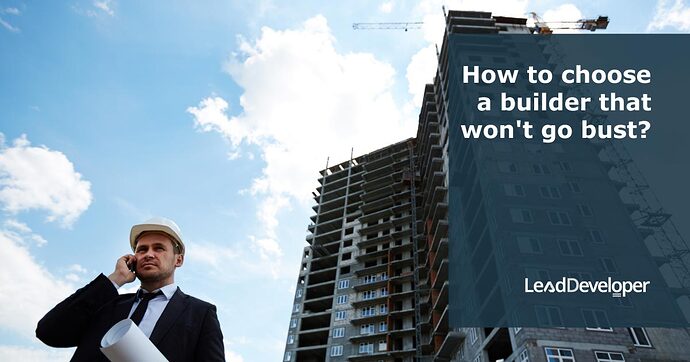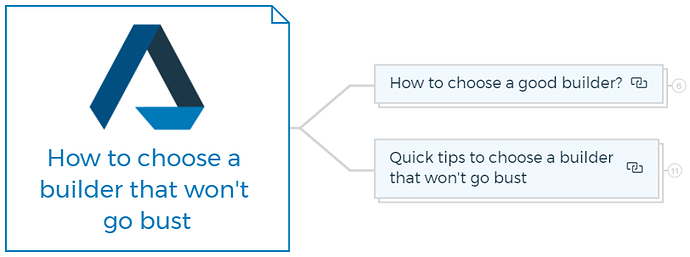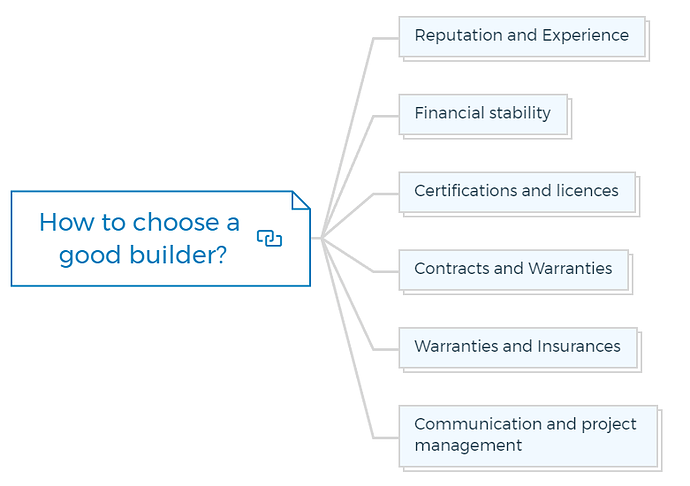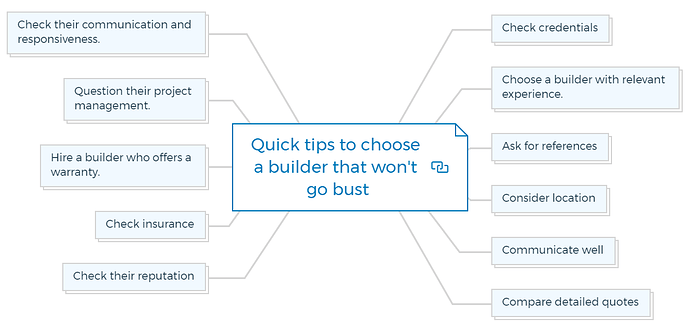How to choose a builder that won’t go bust?
Choosing a builder to work on your project is a crucial decision that requires careful consideration. With the increasing number of building contractors available in the market, it’s essential to choose a reliable and reputable builder who won’t go bust halfway through your project. Here are some factors and tips to consider.
How to choose a good builder?
Several considerations and ways assist you in avoiding hiring a builder that has gone bust.
Reputation and Experience
Reputation and experience are essential when hiring a builder. You may read customer reviews online. Ask relatives, friends, or coworkers who just finished a building project for suggestions. A reputable and experienced builder is more likely to provide excellent work on schedule and within budget.
You are missing out if you haven’t yet subscribed to our YouTube channel.
Financial stability
When choosing a builder, financial stability is crucial. You want to be sure your builder can finish the job without going bankrupt.
Check their financial statements, credit ratings, and other information to assess their financial soundness. You may also get a guarantee or insurance against builder bankruptcy.
Certifications and licences
Licensed and certified builders are trustworthy. Check the builder’s local licence and industry qualifications.
These credentials show that the builder is competent, trained, and up-to-date on construction codes.
Contracts and Warranties
Read and understand the builder’s contract before signing. The contract should specify the scope of work, project timeframes, payment terms, and other specifics.
Builders should also guarantee their labour and supplies. A reputable builder should offer guarantees and warranties for flaws and damages during and after the project.
Warranties and Insurances
Add this to your list of making sure by sighting a confirmation that the builder has indeed taken out domestic building insurance.
Recently, when Porter Davis collapsed, one of the largest project builders in Australia, it was revealed that the builder was taking deposits from clients without actually taking out home owner’s warranty insurance, which covers the client in case the builder goes bust.
So as part of your due-diligence, you must sight the home owner’s warranty insurance certificate that the builder has taken out against your deposit to cover you.
Communication and project management
Successful building projects require good communication and project management. A trustworthy builder will communicate with you throughout the process.
A project manager should oversee the project, guarantee it’s finished on schedule and within budget, and resolve any concerns.
Property Development “How To’s” & Frequently Asked Questions
Includes 5 x detailed eBooks [142 pages]
✓ How To Become A Property Developer? In 10 Easy Steps (51 Pages)
✓ How To Overcome Fear In Property Development? (15 Pages)
✓ How To Become A Real Estate Developer? Without Experience (37 Pages)
✓ Property Developer FAQs – Who, What, When, How? (20 Pages)
✓ How To Become A Real Estate Millionaire In 10 Steps? (19 Pages)
Quick tips to choose a builder that won’t go bust
Check credentials
Check the builder’s licence, insurance, and credentials.
Choose a builder with relevant experience.
A builder who has worked on projects like yours will know the rules and regulations.
Ask for references
Contact the builder’s former clients to gauge their service and job quality.
Learn More
Consider location
A nearby builder will make inspections and work simpler.
Communicate well
Make sure the builder can explain the procedure, and you can communicate with them.
Compare detailed quotes
Before choosing a reputable builder, request a complete quotation with all expenses and materials and compare it to others.
Check their reputation
Check internet reviews, testimonies, and ratings.
Check insurance
Ensure that the builder’s liability and workers’ compensation insurance are sufficient.
Hire a builder who offers a warranty.
A builder that gives a warranty is more likely to stand behind their work and accept responsibility for any difficulties.
Question their project management.
Learn how the builder will handle and finish the project on schedule and under budget.
Check their communication and responsiveness.
A professional builder will respond to your requests and keep you informed during the construction process.
These things will assist you in assessing the builder’s qualifications, experience, and work style.







